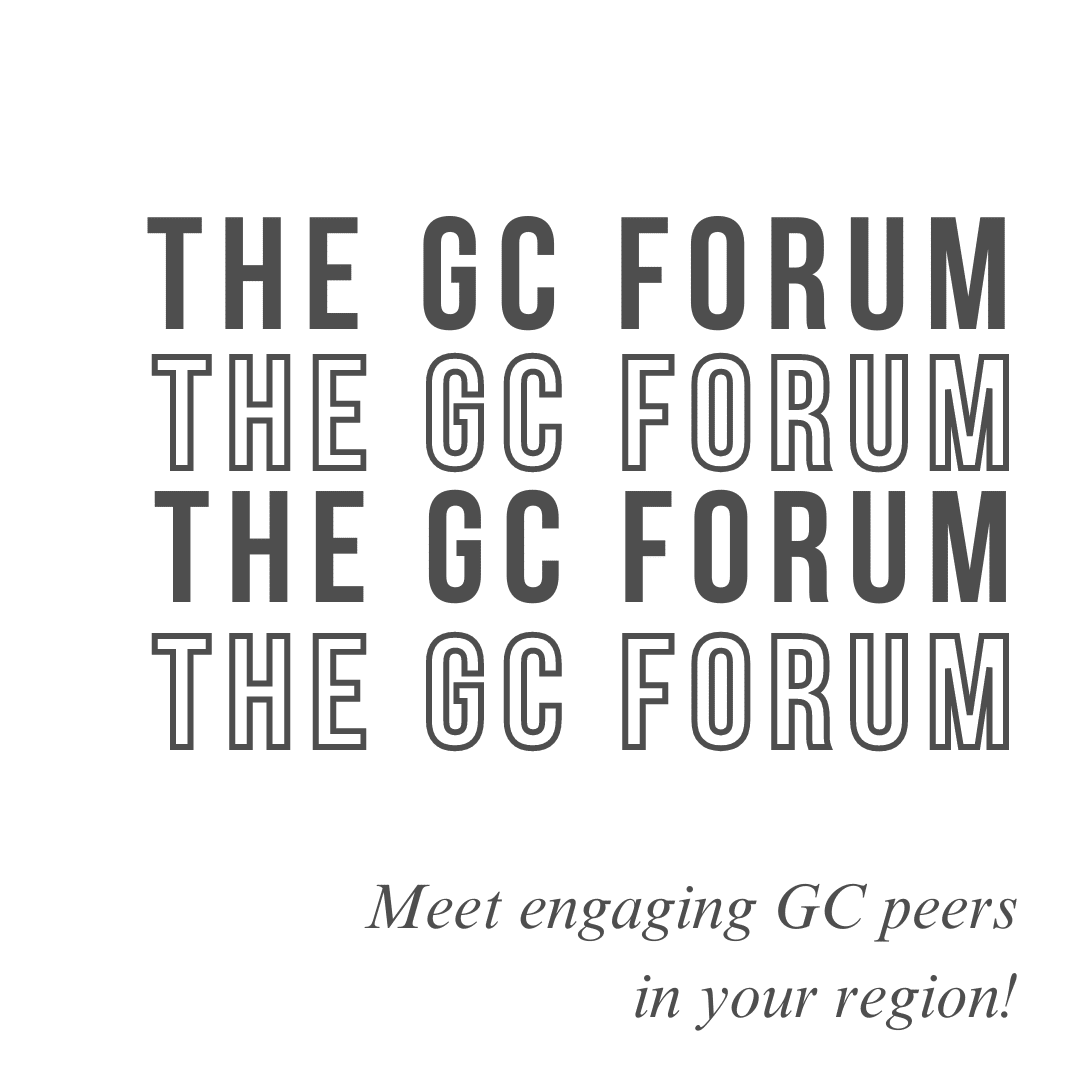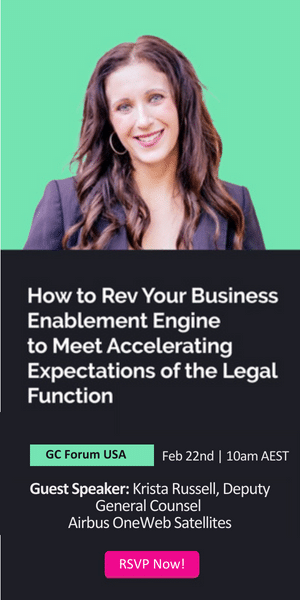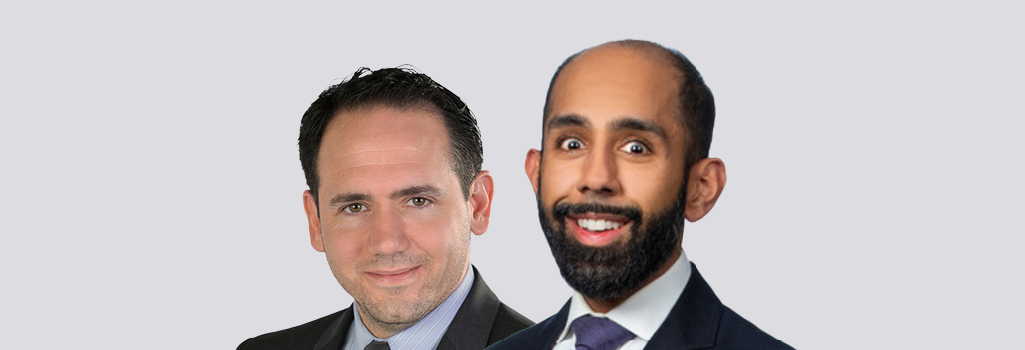 Lisa Lang discusses going viral, deleting the LinkedIn app on her first post, and how she bounced back to building a worldwide network. Lise also believes LinkedIn is of paramount importance for any general counsel who seeks to support his executive leaderhsip during the change management process.
Lisa Lang discusses going viral, deleting the LinkedIn app on her first post, and how she bounced back to building a worldwide network. Lise also believes LinkedIn is of paramount importance for any general counsel who seeks to support his executive leaderhsip during the change management process.
The benefits of establishing trust and building influence should be of paramount importance for any general counsel especially during times of great change. Successfully implementing change can be a challenging process. Why is influence important in the change management process? Change often meets resistance from employees who are comfortable with the status quo. Influential leaders can persuade and motivate those employees to embrace the change by first explaining the benefits of change and addressing concerns. GCs who take the time and effort to establish trust and build influence within their organizations can be uniquely positioned to support the executive leadership during the change management process.
Lisa started her LinkedIn in 2019, before the pandemic, when there were few lawyers on the platform and even fewer general counsels or in-house lawyers. Those lawyers who were on LinkedIn would only read posts and would not comment. Lisa likes to call them lurkers. In an attempt to get her profile going, she made a rookie mistake. She sent out a few too many requests in one day because these same lawyers regularly declined to accept her invitations to connect, she was put into LinkedIn jail, unable to post or connect with anybody for weeks.
This was a little brutal to start.
Lisa was initially very nervous about posting on LinkedIn as she understood the power of social media, especially in making public comments that were very hard to take back. She also wanted to ensure her university employer approved of what she was doing and that there was no issue with the attorney-client privilege or ethical rules. She worked with the university to figure out policies and procedures.
The GC Forum Audience Asked: But, should the GC be allowed to have a profile? How does she handle employers?
When applying for new roles, Lisa does mention her thought leadership in her cover letter. Her decision to do so was based on the experiences of a friend who’d applied for a position and was told that friend was told that she would have to discontinue doing what she had been doing on social media if she accepted the role. To avoid this problem, Lisa is upfront about her thought leadership (including her LinkedIn activities and Above the Law Column) when applying for new roles.
It is important to Lisa that the companies for whom she works understands and supports her efforts to build both an identity as the organization’s employee as well as an identity that is wholly separate from her organization. She argues that building a brand as a GC supports her ability to effectively support the organization for which she works. She freely admits that not all organizations would agree.
Now she would not take a job that was unhappy with what she was doing online. She has realized too many benefits from the engagement. It has helped her connect with others in the field; It has helped her learn about trends in the field; It has resulted in opportunities to write and speak.
Enabling Employees to Connect with Students on LinkedIn
Having recently started teaching at law school, Lisa feels that leveraging her network for the use of her students is fundamental to what she can do for her students.
Her university feels the same and their corporate social media policies encourages employees to connect with students on LinkedIn and help expose them to her network giving them access to people they would not otherwise have.
A place to build trust, integrity and expertise.
Lisa has found that building her brand has made her more accessible and relatable. She is approached by people to have conversations about things they are struggling with. Opening up these dialogues has facilitated building relationships and trust, which in turn, has helped her do her job better internally and with more ease. By being social online this creates a more human, open-door perception of the GC versus the uptight lawyer that most members of the organization steer away from. This in effect leads to tackling of difficult issues earlier on and greater integration of the legal function as part of business enablement. It is a tool to maximize interpersonal skills and reduce anxiety following most requests to average legal department.
As Lisa has built her brand she finds that she has become more accessible and more relatable so that more people would approach her for conversations about things they are struggling with.
She notes, some LinkedIn members do not write their own posts and Lisa even knows of one person who has their administrative assistant reply to comments. Lisa really dislikes this practice as to her the whole point of LinkedIn is to have real conversations with people. Also, by being a lawyer – you are uniquely positioned and capable to lasso writing and communication skills used in traditional practices of law such as the courtroom, but on the newsfeed. She also eloquently states this point and many others in her Above the Law feature about this event titled “The Benefits Of Establishing Trust And Building Influence.”
Helping Others
There have been times when Lisa has thought of no longer posting on LinkedIn. However, she feels she needs and wants to do this as much for other people as for herself. Lisa will continue as long as she gains personal and professional benefits. Having built relationships online, she has also taken some relationships offline to collaborate with people she would never have had the opportunity to do so, and this also keeps her coming back to LinkedIn.
The perfect time to post? It depends.
Lisa points out that the two-hour window after a LinkedIn post has gone live is the ideal time to gain engagement, reactions and comments from that post. This is also the time to quickly respond to comments. So, the best time of day for anyone to post will be individual to the person and when their network is online and engaging with content.
Lisa posts between 7 and 9 a.m. before she starts work. She has time to engage before she’s in her seat by 8:00 or 9:00 a.m. Whilst her employers have been supportive of her LinkedIn activity, Lisa wants to address any concerns about a conflict with her workload and make sure people knew she was doing her day job.
As her network has expanded with people in different time zones, that window for posting has become broader. However, she believes that the C-suite are normally early risers and that as LinkedIn users they will check their account as soon as they wake up at 5:00, 6:00 or 7:00 a.m., much like reading a morning paper.
Guests asked, what about the haters? Going viral with your first post and surviving haters
Whilst her team worked from home during Covid, Lisa came into work to keep the trains moving. As general counsel, the head of a legal team and on the C-suite, everybody was looking for her to be strong. However, while she was used to drawing energy from working on the campus, where there was always activity, she was now by herself, with the buildings, isolated in the dark. She found herself struggling and not knowing what she was going to do.
She decided to post about these concerns, to give herself some grace to not be okay but to just get up tomorrow and do it all over again. After posting about this she was so embarrassed she deleted the app from her phone.
But a day later she looked at it and saw the post had blown up and all the responses were positive. This became the icebreaker. She realized that if she could post about this subject, she could do anything.
However, on another post – this time about millennials and how different they were – Lisa became overwhelmed by negative comments and had to stop reading them. She recommends not to erase negative comments and not to engage in conversation defending. This can happen from time to time especially on controversial topics. The best method is to let it come and go and not amplify with responses.
The post commented about her niece who had refused to take a job that was not her passion. Lisa herself had taken a succession of jobs from golf caddy to washing dishes just to make a buck and she suggested that perhaps her niece simply needed to just get out into the job market.
The post blew up and received half a million views. However, comments became increasingly nasty. She decided not to allow someone who wants to be negative to rent space in her head.
Having said that, for as many people who have a negative comment to say she has found that her posts have a majority positive impact and people send direct messages rather than comment publicly.
How to train your feed?
Commenting, Profile Views and Community Building
Lisa thinks that it is important to train your feed. Whilst hashtags or ‘hitting the bell’ may not be working as well as they used to, engaging with the people you want to see in your feed does work. If there is someone, you’d like to follow but they’re not coming up in your feed, you should go to their page to see if you’ve missed something or “ring their bell.” Likewise, you should follow hashtags to do with your industry, which will allow you to see posts regardless of being connected of content that displays the hashtag.
For example:
#generalcounsel – 2,223 followers
#leadership – 3,282,736 followers
#mentalhealth – 1,8M followers
#lawyers – 74,019 followers
#contracts – 6,260 followers
While posting and following hashtags is one sure way to stay in the mix and receive posts, you do also need to take part of the community by assembling thoughtful comments. This usually is more effective in delivering views on your own content as people genuinely seek to get to know you to respond and develop a relationship with you based on your profile. Which brings us to your profile.
Try to think of your profile as a landing page that people probably are not going to visit your website, nor leave LinkedIn – this means people should really be able to gather a bit about you in your About Me section, title and well: YOUR POSTS. This is the most significant element in driving followers or a community, which in essence, is not just your posts – the community happens across all the posts of your community.
It’s okay not to be okay – but be aware of who reads your posts.
For example, people at her company do read her posts. After Lisa had posted about not needing to be perfect and taking off the superhero cape, several colleagues checked in with her to make sure see was okay. Lisa immediately responded that she was merely having a conversation with a friend about the same subject the other day and found what was discussed insightful and wanted to share. To which all parties were delighted.
Another example, when a news outlet asked her for a comment on a legal issue, she declined as her institution at the time was going through a similar legal issue. Even though her content may be educational, Lisa is aware that what she posts will in some way be connected in the minds of readers with her institution no matter how hard she tries to avoid it. So, she checks the timing of what she’s posting to avoid anybody drawing parallels with a current situation at her institution.
Career and personal benefits of LinkedIn and surprising opportunities
Contributing to LinkedIn has benefited Lisa in three important ways; in her writing career, in further opportunities and in gaining a better understanding of her job through that writing and her network.
Before her first LinkedIn article, Lisa had never written for any publication. Two or three years ago, whilst changing jobs from litigator to in-house general counsel, Lisa thought writing an article would help change her mindset and help in the pivoting she needed to do. Writing helped her clarify what she was doing.
She was then shocked when the community manager of CLM, a legal technology company, approached her asking to reproduce the article for their community. She was then asked to start blogging for them. Then Mothers Esquire asked her to write a guest article for Above the Law entitled ‘If you want different, be different’ in which she wrote about changing the culture of overwork for lawyers. Lisa wanted the article to be a way of encouraging her team to have work-life integration through COVID. This led to her being asked to write the Above the Law column herself.
The second way that LinkedIn has benefited Lisa is by being invited to present at several conferences. This wouldn’t have happened if it weren’t for LinkedIn.
Finally, LinkedIn has given Lisa the opportunity to create a new network around the business aspects of her work. Initially, her network was comprised of members of the National Association for College and University Attorneys. These members are very focused on educational law, and university lawyers tend to not think of themselves as working for a business. LinkedIn provided another network that gave Lisa a better understanding of her job from a business and operational perspective. A place to stay abreast of the future.
The international element of the LinkedIn legal world is what really excites Lisa. If it were not for LinkedIn, she would not get to talk to people from France, Australia, the UK or Hong Kong. Even with separate and different legal systems and training, there is unity as they all struggle with many similar experiences. Lisa finds it fascinating to hear what other people are doing and to work together and collaborate. This is a help to your company, especially an international one.
Finally, building your LinkedIn presence for yourself and your company is a change management accelerator.
What happens after one establishes a personal brand is one garners influence and mainly greater visibility on post to your network of employees, prospects, and collaborators.
In this sense, when we post – besides that we are also c-suite which makes our posts naturally carry incredibly more weight than other employees – we also must consider that if we want our employees to live, breathe and acknowledge a concept that it could require a bit of storytelling and repetition. But, most of all, discussion
LinkedIn can easily become an avenue to inspire new ways of thinking or presenting the same ideas with a unique, authentic method in a more gradual sense further driving impact and aide in generating a 2-way conversation that is naturally akin to the educational process. For more on this subject, please see the Above the Law article marketing this event and leaders leading in the face of change: The Benefits Of Establishing Trust And Building Influence
You can see Lisa’s next event speaking on this same subject here: Leverage your Online Presence
Join the GC Forum
 What is the GC Forum?
What is the GC Forum?
The GC Forum is a peer-to-peer community exclusive to corporate legal on legal transformation best-practices.
Hear war stories, successes, and tales of radical leadership to achieving legal transformation from GCs around the globe.
Join your region to get insights and contribute yours during closed-door GC Forum virtual roundtable sessions, workshops, and quarterly in-person conferences and social events.
To become a member register below….
Upcoming Events
| GC Forum USA: 9 Nov, 11am EST |
|---|
 |
| Navigating the ESG Horizon: What’s Next for GCs |
| Guest Speaker: Christine Uri, Advisor to In-House Legal Team on ESG, Fr. Chief Legal Officer, Top 100 Leader in Sustainability |
| RSVP Here |
| GC Forum APAC: 30 Nov, 9am AEST |
|---|
 |
| Setting the Stage for AI in Your Legal Department: How to Prepare, Launch and Integrate the Use of AI into Your Workflows |
| Guest Speaker: Nina Stamell, GC of MyHealth.net.au |
| RSVP Here |
| GC Forum AUS / APAC: 15th Feb, 8am-9am AEST |
|---|
 |
| The T-Shaped Team Framework: Why the T-Shaped Lawyer vision offers a game-changing new direction for your department |
| Featured Speaker: Peter Connor, 20 Years General Counsel Experience, Author, Speaker, Coach, Founder and CEO of Alternatively Legal |
| RSVP Here |
















